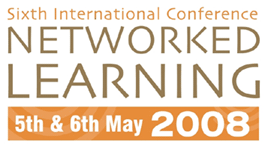

A Descriptive Model of Teacher Communities
Ditte Lockhorst, Jakko van der Pol
IVLOS, Utrecht University, d.lockhorst@uu.nl, j.vanderpol@uu.nl
Wilfried Admiraal
ILO, University of Amsterdam, w.f.admiraal@ilo.uva.nl
Abstract
Educational innovations ask for continuous professional development of teachers. This professional development is not an isolated individual experience. Teachers are required to collaborate with colleagues in their own school and from other schools and organizations. The importance of teacher collaboration is recognized in standards for the teaching profession. Competent teachers are described as teachers that are engaged and active members of learning communities in the school organisation. The term community is used to imply a sustainable form of collaboration that involves certain levels of commitment and dedication, creating a social structure that supports the development and sharing of knowledge. However, most teachers still work isolated, feeling responsibility for their own students and curriculum, at least in the Netherlands. We argue that teachers who are willing and able to collaborate with colleagues do not only learn themselves, but stimulate a professional learning and working culture in the school.
This study is part of a larger research project on the possibilities of computer supported collaborative learning for the development of teacher communities. Before starting empirical studies on teacher community, we need a framework for evaluating communities in order to be able to assess the qualities. Although many empirical studies in the area of communities in organisations have resulted in the description of characteristics of communities, few studies have related (theoretical-based) characteristics of communities to stages of development. In our study we developed an innovative model using existing literature on communities in general and looking at the specific contexts and characteristics of teaching communities in particular. Operationalisation of our model resulted in the development of measuring instruments that can be used to give an accurate view on a particular teacher community and its development and to offer information how to best facilitate it (for instance using ICT support).
We started from our definition of a teacher community as: ‘a group
of collaborating teachers with a certain group identity, shared domain
and goals, and interactional repertoire that allow them to effectively
share and build knowledge’. Establishing a dynamic combination of
these elements, should result in the sustainable professional development
of teachers, both individually and collective.
We distinguish three phases of development of the community, these being
the "Beginning Teacher Community", "Evolving Teacher Community”,
and "Mature Teacher Community". In which phase the community
is in, is determined by three dimensions: "Group Identity",
"Interactional Repertoire", and "Shared Domain", each
of which consists of a set of indicators.
In the description of the development of teacher communities we distinguish
two perspectives. The ‘outsider perspective’ is used to describe
the observable activities of the group and its individual members. The
second perspective is the ‘insider perspective’ measuring
the sense of community as perceived by the community members. The outsider
and insider perspectives are both measured by their own instrument. The
instrument for the outsider perspective is a scoring scheme for observation
that can be used to score all sorts of data (like video, documents, portfolio,
electronic communication). The instrument for the insider perspective
is a questionnaire for the participants of the community measuring the
‘sense of belonging’ and the ‘fulfilment of needs’.
Our model of teacher communities is new and explorative, bringing together
components from various other studies on communities. First checks have
been done on its validity and reliability. However, many questions are
still open to us. For instance, what kind of patterns does the development
of the teacher community have (linear, cyclic, spiral) and can communities
score in different phases between dimensions and within dimensions? In
the next few months data will be gathered in some 10 teacher communities.
During the presentation we will present our model and its instruments,
the outcomes of our empirical validation of the model, and are happy to
share our views on this model with others.
| About NLC |
2008 Conference Papers
| Conference Committee| Keynote
Speakers
| Papers from previous NL conferences |Research Seminars| Current Conference
| Sponsors | Contact
|
